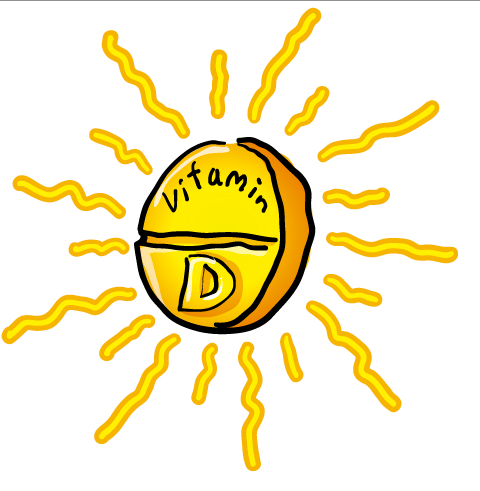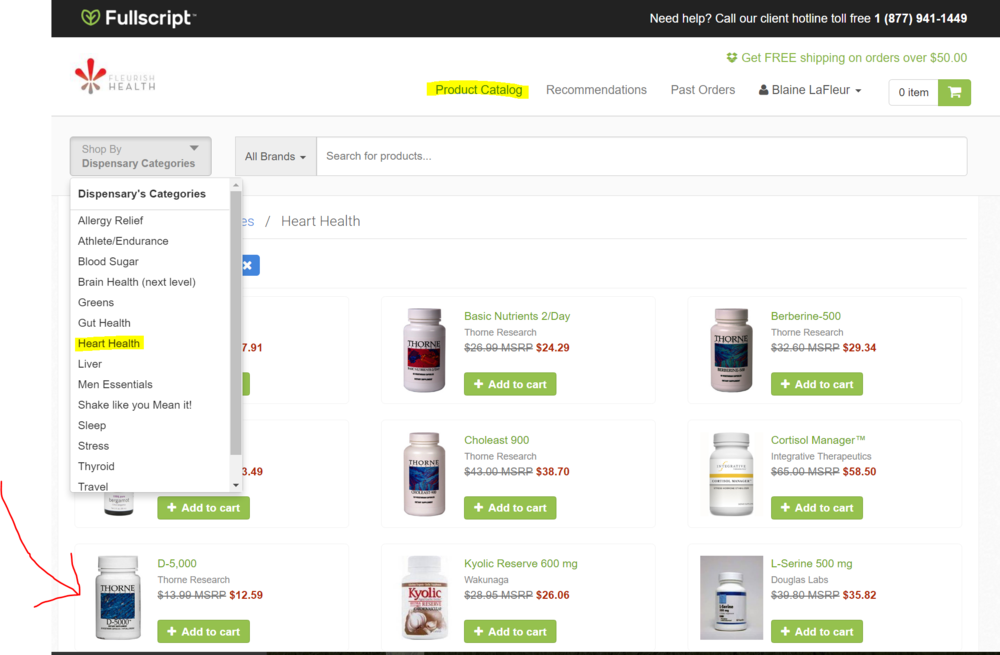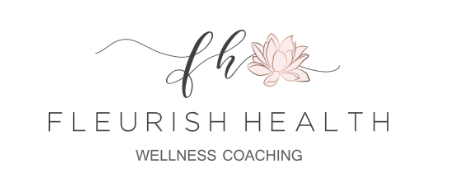
I received a message the other day from a client that read along the lines of:
“T, if you had to choose one pill to take every day and couldn’t take anything else, what would it be?”
Interesting question! Although, it didn’t take me long to fire off a response: “Vitamin D. Hands down.”

Not Fish Oil?!!
Not a stool softener?!?!?
Not a baby aspirin, a statin, or Flintstone Multi?!?! (Oh, the humanity!!!)

Despite its name, “Vitamin” D is actually a steroid hormone, which you get primarily from either sun exposure or supplementation, along with some foods. Researchers have also discovered that Vitamin D is involved in the biochemical cellular machinery of ALL cells and tissues in your body. Hence, when you don't have enough, your entire body struggles to function optimally.
Just how important is Vitamin D? Here are a few facts about its relevance to health:
- Your mental health may suffer when you're vitamin D deficient. Previous research has shown having a Vitamin D level below 20 ng/mL may raise your risk for depression by as much as 85%, compared to having a vitamin D level greater than 30 ng/mL. Studies also confirmed that vitamin D supplementation can also alleviate symptoms of depression.
- Increasing levels of Vitamin D among the general population could potentially prevent chronic diseases that claim nearly 1 million lives throughout the world each year.
- Adequate Vitamin D levels may decrease your risk of ALL cancer by 77%
- Vitamin D deficiency contributes to high blood pressure, diabetes, and inflammation—all of which increase cardiovascular risk. Low levels of Vitamin D have been noted in heart attack sufferers and those with atherosclerosis, and may contribute to the elevated cardiovascular risk that accompanies kidney disease.
- Vitamin D works better than the flu vaccine if taken when your levels are low
(Psshhh) “Flu Shmoo, T…. what do I need to do about it?”
Okay Okay! So, how much is necessary?
Well, to reap maximum benefit, research shows that you need a vitamin D level of at least 40 to 60 ng/ml (a more ideal level may be 50 to 70 ng/ml), and to get there, you may need around 5,000 to 6,000 IUs of Vitamin D per day.
“But T, I live in Louisiana. I get plenty of sunshine. Mah D level is to da max!”
Uno, momento! (as T looks for sharp object to burst your naïve bubble)
Unfortunately, unless you commute midday in a convertible or are a professional fisherman, your 1 hour on your lawnmower Saturday afternoon just may not cut it. While sunlight is the ideal way to optimize your Vitamin D, winter and work prevent more than 90 percent of those reading this article from achieving ideal levels without supplementation. The only way to know you have adequate levels of Vitamin D is to measure it.
But what about foods that contain Vitamin D?
Although few foods contain significant amounts of Vitamin D, important sources in the diet could include fatty fish (such as salmon or tuna) fish liver oils, and eggs. Small amounts of Vitamin D were also found in beef liver, cheese, and other dairy products. However, I do NOT condone attempting to achieve optimal Vitamin D levels by consuming dairy. The benefits definitely do not outweigh the risks associated. (FYI: the government will also list Orange Juice that has been fortified with Vitamin D as a reliable food source. #Murica!)
Just to give you an idea of the amount of Vitamin D levels contained in some foods along with their recommended dietary allowance (RDA):
- Four ounces of wild-caught Alaskan sockeye salmon — 128% of the RDA
- 3.2 ounces of sardines — 44% of the RDA
- One egg — 11% of the RDA
- Shiitake mushrooms — 5% of the RDA
- Gumbo and Beer – You wish!
Keep in mind that the RDA is far lower than necessary to raise your Vitamin D levels into the therapeutic range, so it's difficult to achieve enough vitamin D from dietary sources alone. Contrary to what's reported by most mainstream media (Facebook MD*), most people cannot optimize their Vitamin D levels by getting the recommended 600 IUs of Vitamin D from fortified foods. Again, the only way to know for sure how much Vitamin D that you need, specifically, is to test it. Period! If it's very low, you may need 8,000 to 10,000 IUs of Vitamin D per day in order to reach and maintain a clinically relevant level of 45 to 60 ng/mL.
It is also important to note that if you've been supplementing for some time and your levels are still below 45 ng/mL, you then know you have to further increase your dose. If you have been using an oral supplement, make sure to also boost your vitamin K2 and Magnesium intake, as these nutrients help optimize Vitamin D levels.
From experience, the majority of clients that I have tested or that have sent me their lab work, have been deficient in Vitamin D. During the winter months, it is almost inevitable. Get tested, supplement adequately, and for God’s sake, don’t drink fortified OJ!
Want to get our recommended pharmaceutical grade Vitamin D? Click here, or Button below, and follow instruction in image below.


"EVERYONE NEEDS SOMEONE TO HELP THEM DO WHAT THEY OUGHT TO DO. YOUR JOURNEY AWAITS....."
-TYLER LAFLEUR RN, CEP, CFMP

